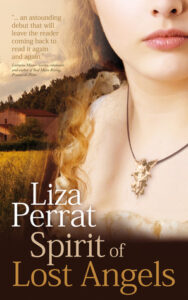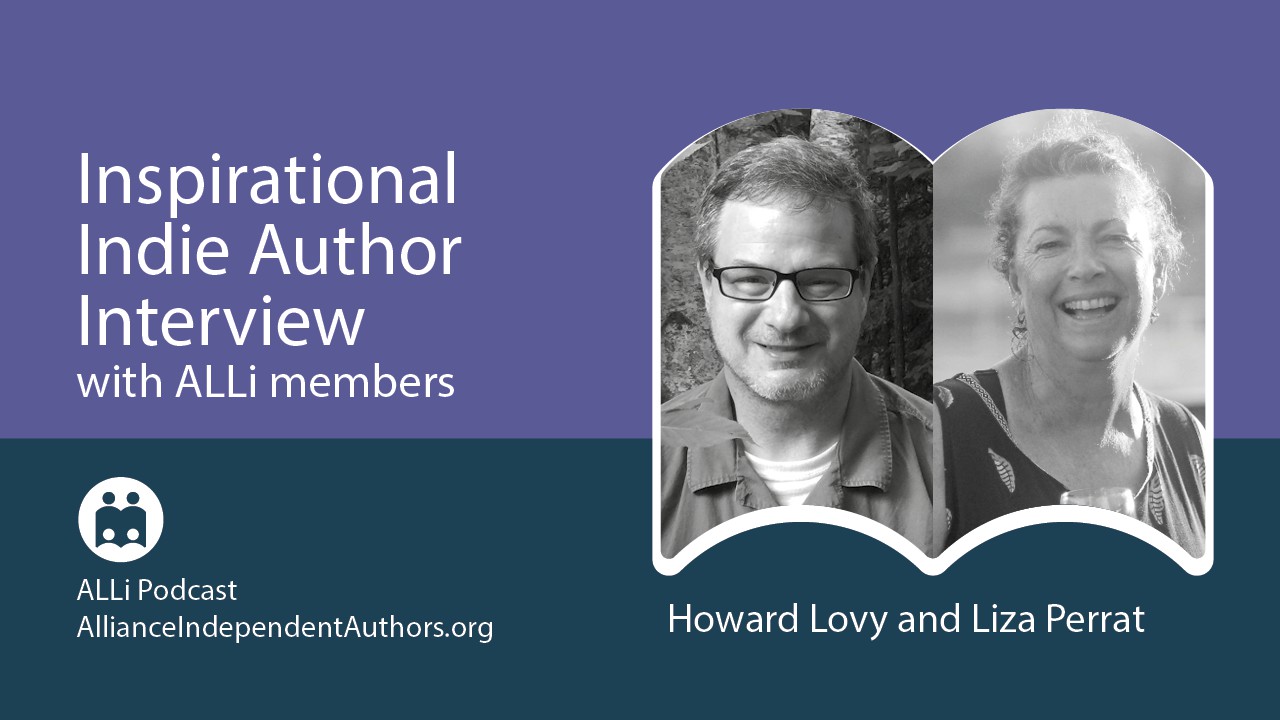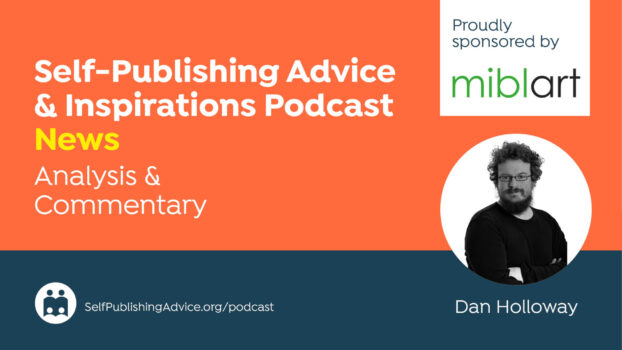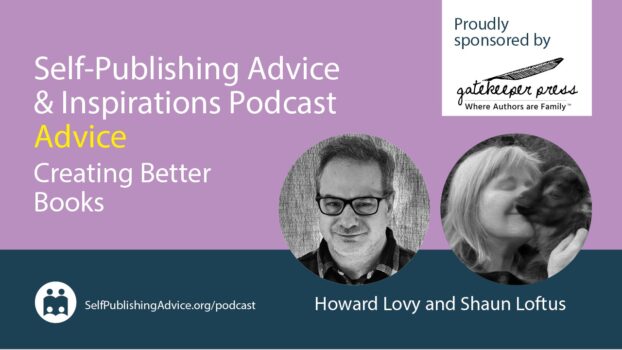My guest this week is Liza Perrat, a truly international indie author—an Australian by birth who writes historical novels about France, her adopted country. In fact, you'll hear a combination of both countries in her voice.
Liza's books also give voice to those who lived through painful periods in both French and Australian history.
But before we talk about her books, here's Liza's story.
Every week I interview a member of ALLi to talk about their writing and what inspires them, and why they are inspiring to other authors.
A few highlights from our interview:
On Why She Wrote about the Nazi Occupation
My parents-in-law lived under the Nazi occupation. They told me stories about it, how awful it was. And it was something that I could see because I was living in the place where it happened.
On Why She Wrote about Australia in the '70s
That also is a time of big social change. Feminism was making a lot of progress and there was the Vietnam war fiasco. … So, there were a lot of things happening as well around the seventies that were interesting for me. It's a very typical dysfunctional family. At that time, there were so many of them.
Listen to my Interview with Liza Perrat
Subscribe to our Ask ALLi podcast on iTunes, Stitcher, Player.FM, Overcast, Pocket Casts, or Spotify.
Interview with Liza Perrat — Novelist Uses French, Australian History as her Canvas: Inspirational Indie Authors Podcast Click To TweetFind more author advice, tips and tools at our Self-publishing Author Advice Center: https://selfpublishingadvice.org, with a huge archive of nearly 2,000 blog posts, and a handy search box to find key info on the topic you need.
And, if you haven’t already, we invite you to join our organization and become a self-publishing ally. You can do that at http://allianceindependentauthors.org.
About the Host
Howard Lovy has been a journalist for more than 30 years, and has spent the last six years amplifying the voices of independent publishers and authors. He works with authors as a book editor to prepare their work to be published. Howard is also a freelance writer specializing in Jewish issues whose work appears regularly in Publishers Weekly, the Jewish Daily Forward, and Longreads. Find Howard at howardlovy.com, LinkedIn and Twitter.
Read the Transcripts of My Interview with Liza Perrat
Howard Lovy: I'm Howard Lovy, and you're listening to Inspirational Indie Authors. Every week, I feature a member of the Alliance of Independent Authors to find out what inspires them and how they are an inspiration to other authors.
My guest this week is Liza Perrat, a truly international indie author. An Australian by birth, who writes historical novels about France, her adopted country. In fact, you'll hear a combination of both countries in her voice. Liza's books also give voice to those who lived through painful periods in both French and Australian history.
But before we talk about her books, here's Liza's story.
Liza Perrat: Hi Howard, I'm Liza Perrat and I live in France, although I am Australian by birth. I've been here for almost 27 years now because my husband is French, and I work as a part-time medical translator and a part-time novelist. I basically got into medical translations because I have a background in nursing and midwifery, and I started writing in 2000, so 20 years ago now. Gosh, that's gone quickly. And I did an online writing course. It's something that I think I'd always wanted to do, but as with most people, real life gets in the way, and then something happened, some kind of trigger, and it just popped into my head one day that, oh, I think I really do want to write now.
I was a really big reader as a child, spent my whole childhood either on the beach or reading books. I just loved playing with words. So, I remember being 10 and 11 years old in creative writing at school and just liking playing around with words.
Howard Lovy: But like many writers, she decided she needed a career that paid first. So, she went to college to study nursing and midwifery, but that wasn't really where her heart was. Liza had a restless spirit and that was her ticket away from home.
Liza Perrat: I wanted to leave home at the age of 18 and earn a wage as soon as possible, and that was the only job that you could do that.
It wasn't really something I wanted to do. I don't even think I was a very good nurse. I think I was too sensitive, and it was too hard a job dealing with that, for me. I would just get too involved and I couldn't keep my distance from people. I was just too sensitive.
So, I don't think I was the right person for that job. I think midwifery I enjoyed a lot more because it was usually a happy occasion, and I loved that. That was really nice.
Howard Lovy: Nevertheless, she pursued medicine and also her love of travel, but it was on one of her trips that her life changed unexpectedly.
Liza Perrat: I was on a bus in Bangkok, a local bus. I was on a quick trip to Thailand, and Nepal, and India before tending a midwifery position in Saudi Arabia. And this was in 1998, and then I met my husband on his bus the first day in Thailand, and then I never made it to Saudi Arabia.
So, I came to France instead.
Howard Lovy: She didn't speak the language and could no longer pursue a career in medicine. So, she decided to go back to university and get a degree in French. This led to a job as a translator with a company that manufactures medical devices. But the transition from Australia to France was not an easy one for Liza.
Liza Perrat: Well, I think for a start it was not having any qualifications, not being able to do my job, not speaking the language, not having any friends or family. It was very alienating, and I had two small children at the time and then, pretty much straight away after, a third one.
And so, I was really stuck at home on my own with them, and it was very isolating and it was really not a nice experience at all in the beginning, until they got older and I could get out and about a bit, and then it got better. And also, I missed Australia and I missed the beach really because I loved swimming and I loved the beach and I really missed that, and I still do.
 Howard Lovy: Eventually, Liza warmed up to France, and that came primarily through discovering the history of her local village. That in turn sparked her imagination and set her on a new course as a historical novelist, and her first book, Spirit of Lost Angels.
Howard Lovy: Eventually, Liza warmed up to France, and that came primarily through discovering the history of her local village. That in turn sparked her imagination and set her on a new course as a historical novelist, and her first book, Spirit of Lost Angels.
Liza Perrat: We were on a walk around the village and there's this walk called the 16 Crosses. Each cross represents something different, and I came across one right on the river that's a memorial to two young children, drowned in the river, in the 1700s, so that really piqued my interest.
So, I went along to the local historical society, which happens to be in this village too, which is very handy, and they told me where they are buried and a little bit of information. Not that they knew much because it was early 1700s, but it was enough for me to want to bring these children alive and give them a family and a village and a story. So, it started from there, and then I wanted to place it in a period of time that was dramatic and there was a lot of social change and upheaval. So, I thought to put it just before and during the French Revolution.
It's not a novel about the French Revolution, though, it just happens to be set against that basic backdrop of the poor peasant people against the rich aristocracy.
I didn't plan on writing a trilogy, but then I happened to be talking to some ex-resistance fighters, obviously really old people, who were still alive and still lived in the village, and they were telling me these crazy stories about being French resistance fighters and how it was during the Nazi occupation here, how they were hiding in the bushes and doing all these things against the Germans.
It was really, really interesting. So, I really wanted to write the next book about that. So, I did, I wrote it basically about the French resistance against the occupation. And again, set in the same village. I figured by the end of the second one, the reader needed to know where this actual bone angel necklace came from. So, I went right back in time and I chose the black plague because again, another dramatic event that really changed people's lives and the whole of society. So, I went back to 1348 for the third one. So, it really came about on its own, it wasn't planned from the beginning, this trilogy.
Howard Lovy: A great plague and Nazis. While Liza is strictly an historical novelist, there's something familiar about those topics today, but she says any similarity to today's news is purely coincidental.
Liza Perrat: I wrote these books a few years ago, well before this virus situation, so it was completely coincidental.
I think it was because they were subjects that really got to me. My parents-in-law lived under the Nazi occupation. They told me stories about it, how awful it was. And it was something that I could see because I was living in the place where it happened, and there's a museum about it not too far away from here, just 10 minutes up the road.
So, I've been there and there's all the documents, you know, false papers and how the Germans sent them away to labor camps and it was, you know, very big things. So, it was something I really wanted to write about.
Howard Lovy: For Liza’s next series of books she decided to go back to the Australia of her childhood in the seventies. But it wasn't necessarily nostalgia for the good old days. It was a time of upheaval, both in society and within families.
Liza Perrat: That also is a time of big social change. Feminism was making a lot of progress and there was the Vietnam war fiasco, which I remember clearly. People being up in arms about Australian soldiers having to go over there and fight, and they didn't think that we should have anything to do with it. So, there were a lot of things happening as well around the seventies that were interesting for me.
It was a time of big social change. It's a very typical dysfunctional family. At that time, there were so many of them. There wasn't this thing of, I've got to encourage my child and praise them, and they've got the right to say, not exactly what they want, but they're listened to and they can have an opinion now. But we weren't, we couldn't.
We were more seen and not heard. And if you did well in something, at sport or at school, well that was great, but you didn't really have the right to jump up and down about it, and your mum certainly didn't put it on Facebook or anything.
Howard Lovy: Social and family change in Australia turned out to be rich territory to mine. Liza wrote five books in her Australia series, and her books began to win awards. She was recently shortlisted for the 2019 Exeter Novel Prize. Like everybody else around the world, Liza is not very mobile, and it was difficult at first, but she's learned to live under lockdown. And with some exercise, she's able to focus on her writing, and at least, in her mind, go back to Australia to continue her series of mysteries.
Liza Perrat: Well, I think at the beginning, from talking to fellow writers, everybody was so anxious and stressed about the whole situation that nobody could concentrate on writing.
But now I think it's become a bit normal, because in France we've been like this since the 11th of March. So now it's become kind of the new normal, and I hear all my author friends saying that they are getting back to writing and they are doing as before.
And also, it's always good diversion therapy to escape into writing books, and then you don't have to think about real life. But I'm trying to still get exercise and do things like Pilates and yoga and a bit of swimming to relax as well. Although it is hard, as you say, to draw the line between work and not work, now.





